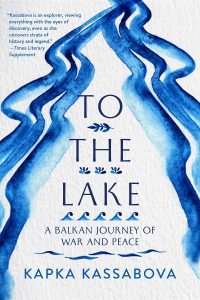
Lit Hub's Most Anticipated Books
of 2020, Part 2
A Reading List for Our Cursed Timeline
AUGUST
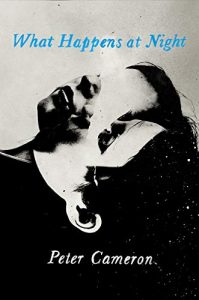
Peter Cameron, What Happens at Night
Catapult, August 4
I absolutely adored this icy, Kafkaesque novel about a couple who travels to a distant European land and its Borgarfjaroasysla Grand Imperial Hotel to adopt a child. It’s hard to tell how exactly to interpret the book’s atmosphere—the surrealist qualities are so cosy with the real—which is something that often doesn’t work. But here, Cameron nails it, letting us have both dream and reality at once, in the most compelling, delicious fashion. –Emily Temple, Managing Editor
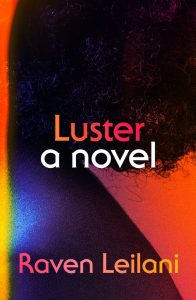
Raven Leilani, Luster
FSG, August 4
As previously described: Sure, like many popular recent novels by young American women, the narrator of Luster is bored, and self-destructive, and working at a job she hates. But she is the fierce, unruly antidote to what Jess Bergman called the “remote avatars of contemporary malaise”—she is not cool, nor detached, nor noncommittal, but absolutely bursting with thoughts and feelings and desires, some of which often spill over and make a mess, or a scene, or a bonfire. Edie talks shit but also takes it—she’s hilariously caustic about the world around her, but her criticism never feels empty. I loved every minute of this debut. –Emily Temple, Managing Editor
Kapka Kassabova, To the Lake: A Balkan Journey of War and Peace
Graywolf, August 4
The literature of the world’s borderlands is ever-expanding, even as this or that nation state seeks to impose its brittle authority on those spaces where trade, culture, and language intersect in a great, vibrant human mess, building walls where none should be. Kapka Kassabova’s 2017 Border, which explored the edgelands of Turkey, Bulgaria, and Greece, was a gripping read (see for yourself, here), so I’m very much looking forward to To the Lake, in which she journeys to the mountainous borderlands of North Macedonia, Albania, and Greece—her grandmother’s homeland—finding much more than the ancestral legacy she’d set out to uncover. –Jonny Diamond, Lit Hub Editor-in-Chief
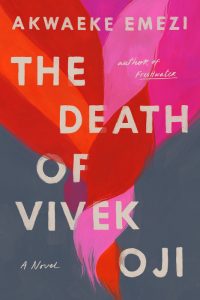
Akwaeke Emezi, The Death of Vivek Oji
Riverhead, August 4
As previously described: We know Vivek Oji is dead before the story even begins. Like other incredible novels that begin this way (Gabriel García Márquez’s Chronicle of a Death Foretold comes to mind), the story ebbs and flows through time around this undeniable fact, the impetus for the telling. It feels like a story passed down to you, something best read aloud. The opening passage asks you to picture the story as a stack of family photographs; you feel welcomed, lulled into the start of a good story by a master storyteller. And Akwaeke Emezi is indeed just that; have you read their debut, the critically acclaimed Freshwater? In this new novel, the protagonist is similarly touched by something unknowable and otherworldly; Vivek Oji is prone to blackouts, moments of complete separation from self and surrounding. This is something we know from the beginning, something to track as we follow the course of his life, relayed to us by those closest to him. (Sometimes, Vivek interjects, and it is a jarring delight.) The Death of Vivek Oji is an alchemy of personal family story and untouchable myth. It circles itself, like a shark preparing to take down its prey; reader, you will be disarmed. –Katie Yee, Book Marks Associate Editor

Jonathan C. Slaght, Owls of the Eastern Ice: A Quest to Find and Save the World’s Largest Owl
FSG, August 4
As previously described: For five years, the author seeks to save the world’s largest owl (he thought it was a bear with feathers when he first encountered it), a bird native only to a remote region of Russia. Using a blend of reportage, narrative nonfiction, memoir, science journalism, and travel writing, Slaght also encounters a fascinating cast of characters along the way who consider him a different kind of rare creature since, as few foreigners ever visit the landscapes of eastern Russia. Slaght’s entertaining, sometimes elegant prose propels the narrative thrust of this book, and his scientific knowledge buoys the story from underneath. Owls reminds me of Helen Macdonald’s H is for Hawk and Robert Macfarlane’s Underland, in that an exploration into one thing (owls, the earth) ends up in other places (the human condition, personal reckonings). This is a force of modern day nature writing with gravity and humor, and I’m betting it will be one of the more widely-acclaimed nonfiction books of 2020. –Kerri Arsenault, Lit Hub contributing editor

Edward Ball, Life of a Klansman: A Family History in White Supremacy
FSG, August 4
As previously described: Just over 20 years ago Edward Ball won a National Book Award for his memoir, Slaves in the Family, a profound excavation of his family’s history of owning slaves. That it did not spawn a similar reckoning among southerners—as Gunter Grass’s memoir did with Germans, who found their families full of Nazi pasts—should have earned more attention. One of the great things about that book was how Ball made it a story driven by the lives of those his family had, in essence, erased.
Now in his biggest book since, Ball has written a biography of his great-great-grand-father, Constant Lecorgne, a carpenter and father of five who came to be an active true believer in the Klu Klux Klan in Louisiana after the Civil War, a man who on the outside appeared to be living a mundane existence. But who in reality had committed himself to spreading racial terror in the most hateful and violent ways: night raids, street rampages, the whole theatre of fear drummed up to undo the reality of 4 million recently freed African Americans.
Ball tells his story with curiosity, disgust, and a sweeping lamp of novelistic imagination, making his tale all the chillier for being so intimate, so intensely realized. He also tracks down the descendants of the victims of the Klan’s terror and violence, unspooling their stories in a history which is all the more painful for its points of interconnection. With—by some estimates—over half of whites in American having an ancestor at some point in their past being a member of the Klan, this is an important work of America’s collective history—one whose ghosts are most undead. –John Freeman, Lit Hub Executive Editor
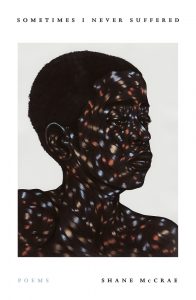
Shane McCrae, Sometimes I Never Suffered
FSG, August 4
The New Yorker‘s Dan Chiasson has called Shane McCrae “a shrewd composer of American stories,” with work that reflects a deep understanding of the many modes of American speech. With Sometimes I Never Suffered, McCrae continues to create works of endless invention, those that yield sharp insight about contemporary life. –Corinne Segal, Senior Editor
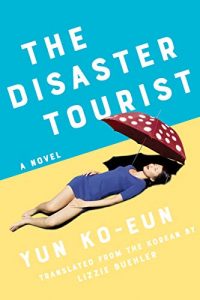
Yun Ko-eun, tr. Lizzie Buehler, The Disaster Tourist
Counterpoint, August 4
I read Yun Ko-Eun’s unsettling, off-kilter, and at times very funny thriller relatively early in New York’s lockdown, and found it to be, if not a twin of my feeling, at least an empathetic cousin to them. Yona is a long-time employee of a company that coordinates travel to the sites of disasters, and she takes a trip to the impoverished (and sinkhole-ridden) island of Mui to assess its continued viability as a destination. The novel is deeply moral without feeling moralizing, and its anxiety feels free-floating until it builds to a fever pitch. Read it, and find some relief in the fact that you won’t be traveling for a while. –Jessie Gaynor, Lit Hub Social Media Editor
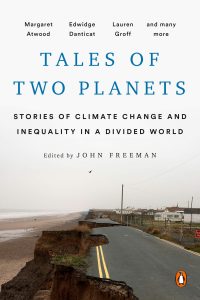
John Freeman, ed., Tales of Two Planets: Stories of Climate Change and Inequality in a Divided World
Penguin Books, August 4
As previously described: The third in Freeman’s hat trick of anthologies that examines inequalities, Tales of Two Planets, may be the most important, for it addresses a colossal and irreversible threat: climate change. How to tell this story about a landscape so altered by us it’s reciprocating the abuse, where the more vulnerable and poor are more susceptible to environmental injustices?
Freeman asked 36 writers from Iceland to India, who are living within the penumbra of this bifurcated world of disparity and disenfranchisement, to bear witness to climate change beyond mere data. They are the facts on the ground, and their stories about craven US governance, the depletion of species in Burundi, Iceland’s geologic tragedy, the displacement of 20 million people in Pakistan, and resource pilfering and greed in Lebanon trace the inequalities that have also led to environmental imbalances. The purpose of such essays, fictions, reportage, and poems are to remind us—as Lina Mounzer discovers when developers overburden the sewer system in Beirut and it erupts in biblical proportions—we can’t carry on as if things will sort themselves out. We have to live within limits.
It’s a dark path we walk when the majority of the planet belongs to Hobbes’s First Man, condemned to a poor, cruel and short life, while Frances Fukumaya’s Last Man, (privileged, well fed, with access to technology and globalization’s muse) inhabits the rest. The Last Man will survive environmental stress and scarcity. The First Man will not. Freeman’s collection is critical to understanding our planet beyond the scope of our own personal plights. –Kerri Arsenault, Lit Hub contributing editor
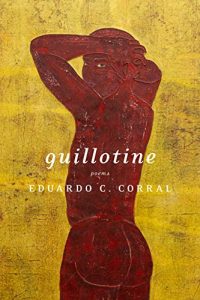
Eduardo C. Corral, Guillotine
Graywolf, August 4
Eduardo C. Corral’s debut collection Slow Lightning won the Yale Younger Poets Prize; now, he’s back with Guillotine, a stunning follow-up to that work. His speakers walk through what Ethan Milner, writing for The Scores, called “a perilous terrain of shattered glass, arid heat, and spiny saguaro,” with long-lasting and devastating consequences. –Corinne Segal, Senior Editor
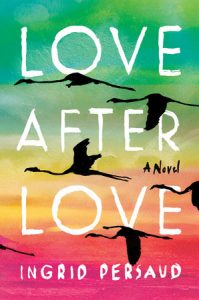
Ingrid Persaud, Love After Love
One World, August 4
This debut novel by Trinidadian author, Ingrid Persaud, takes on family, what we owe, who we choose, and the secrets that we keep to protect those we love. When Solo’s father dies, his mother, Betty, takes in a lodger, Mr. Chetan. One night, Solo overhears his mother reveal something earth-shattering to Mr. Chetan, and Solo leaves his home and his mother to live in New York and try to put the pieces of his family lore back together. At times hard, and harrowing, but also warm, tender and deeply connected, much like a family, Love After Love delivers on all that it promises. –Julia Hass, Lit Hub Editorial Fellow
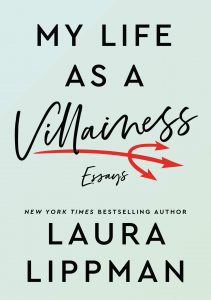
Laura Lippman, My Life as a Villainess: Essays
William Morrow, August 4
While most of us came to know Laura Lippman’s work first, through her groundbreaking Tess Monaghan series, and then through her numerous and always well crafted standalones, it’s Lippman’s nonfiction that’s been playing my heartstrings lately—she’s spent the past couple of years writing a beautiful, moving, and always wry essay series on aging and life after 60, full of wisdom when it comes to caring, and advice on when not to care. Her new essay collection draws from the same well of deep thought, wry wit, and hard-come-by wisdom, and should be equally loved by crime fans and literary essay stans alike. –Molly Odintz, CrimeReads Senior Editor
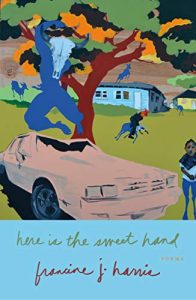
francine j. harris, Here is the Sweet Hand
FSG, August 4
In an interview with Kaveh Akbar, francine j. harris said, “I’m not the kind of person who’s interested in preserving language. I love how it changes.” Her third collection, Here is the Sweet Hand, brings this approach to language with poems that lie at the intersection of sexuality, aging, art, and race. –Corinne Segal, Senior Editor

Araminta Hall, Imperfect Women
MCD, August 4
I was blown away by Hall’s American debut, Our Kind of Cruelty, and her new novel, Imperfect Women, promises to please those who enjoy psychological thrillers and all those who love Elena Ferrante but wish her series was just a bit (okay, a lot) more twisted. Told from the perspectives of three friends since college and their ups and downs over the next decades, culminating in the untimely death of the center of the group, Hall’s suspenseful and astute thriller should keep us guessing till the very last reveal. –Molly Odintz, CrimeReads Senior Editor
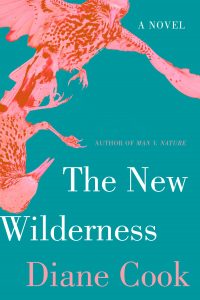
Diane Cook, The New Wilderness
Harper, August 11
As previously described: I’ve been impatiently waiting for Diane Cook’s first novel since I discovered her collection, Man V. Nature, in 2014. It’s finally here—and to answer your first question, yes, it was indeed worth the wait. For those of you lucky enough to already be fans of Cook’s, know that the novel is both unlike and like her stories—unlike in the sense that it is more spacious and essentially realist, despite the fact that it is set in a near-future version of the world we know in which there is only one plot of wilderness left, and like in its blinking humor, and in the sense that it tackles the deepest of human emotions—as well as big ideas about the planet—in satisfying ways. Also, it’s a page-turner! –Emily Temple, Managing Editor
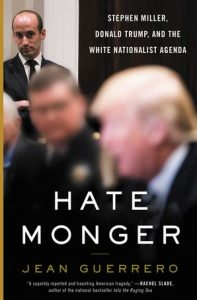
Jean Guerrero, Hatemonger: Stephen Miller, Donald Trump, and the White Nationalist Agenda
William Morrow, August 11
The architect of our current administration’s most discriminatory immigration policies was largely an obscure figure before arriving in the West Wing. Hatemonger chronicles how we got here, threading details of Miller’s early years and family background with clues as to how he formed a political approach that has brought disaster to thousands of American families. Like watching a train wreck in slow motion, this meticulous account is horrific but impossible to ignore. –Corinne Segal, Senior Editor

Nate Marshall, Finna: Poems
One World, August 11
Nate Marshall’s long-awaited second collection is a dazzling and heartbreaking book, surely the year’s breakthrough volume. Beginning with a series about his name—poem by poem, Marshall reclaims himself in sound:
family, this is my name
a myth that i don’t own alone. i never even meant
to have this name this just a happy accident of birth,
an unhappy coincidence of intersecting histories,
an abbreviation that became law.
Marshall writes of other Nate Marshalls who didn’t make it out of Chicago; he writes of the Nathaniel he almost became; he even writes of a racist Nate Marshall who trolls him on twitter, and who his students troll back. Amazingly, this last man earn his unironic sympathy. “i too have sat suspicious in my basement/wondering who was coming for my country.”
Finna is a book full of this kind of complex aphoristic love, often direction for and toward his people, as the dedication elegantly puts it: “the ones I love &/especially the ones I struggle to love.” Stripped of most commas, using ampersands to pivot, Marshall’s syntax beautifully transmits sound—and that sound across Finna is one of longing and anguish, grief and regret. It is a Black voice celebrating its sound. These poems ache to be said aloud and upon reading sink deep. –John Freeman, Executive Editor
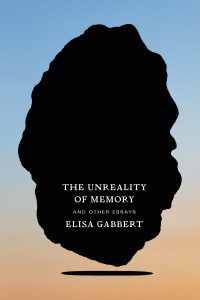
Elisa Gabbert, The Unreality of Memory
FSG Originals, August 11
Elisa Gabbert’s essays are always worth reading. (Again, I must hand it to the prose-writing poets.) If your mind needs a respite from (gestures at internet) all the stuff, treat it to a collection of “provocative, searching essays on disaster culture, climate anxiety, and our mounting collective sense of doom.” Not necessarily uplifting, but personally, I find reading the meditations of a brilliant writer, particularly meditations about the dread I can’t shake, both soothing and invigorating. –Jessie Gaynor, Lit Hub Social Media Editor
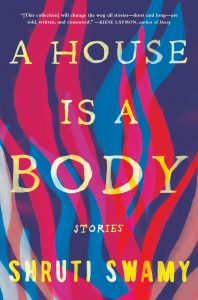
Shruti Swamy, A House is a Body
Algonquin, August 11
Swamy’s debut book of fiction is one of the year’s more eagerly anticipated short story collections. Swamy writes, among other things, about the social and cultural pressures that shape the lives of women. The titular story, which The Paris Review published in 2018, showcases Swamy’s voice, notable for its elegiac and conversational pitch. –Aaron Robertson, Assistant Editor
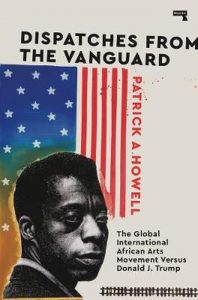
Patrick A. Howell, ed., Dispatches From the Vanguard: The Global International African Arts Movement Versus Donald J. Trump
Repeater, August 11
Patrick Howell has gathered voices from a transnational body of artists, writers, thinkers and activists who have been working steadily in the shadow of the Trump administration. Mobilizations against white supremacy are proposed by people like Nikki Giovanni, Nnedi Okorafor, Tyehimba Jess and many others. –Aaron Robertson, Assistant Editor
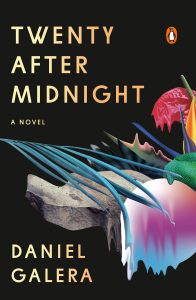
Daniel Galera, tr. Julia Sanches, Twenty After Midnight
Penguin, August 11
A group of friends in Porto Alegre whose swinging heyday was the 90s are brought together by the death of a friend twenty-five years later in Daniel Galera’s barbed and swift new novel. “Andrei’s unexpected death had thrown a grenade into Brazil’s drowsy literary scene,” says the book’s 33-year-old narrator, reeling from his former friend’s unexpected death in a mugging. Home again as an adult, he takes stock of the difference between now and then. Once they’d parted all night long, writing and publishing with fanatical zeal and utopian ideas on an e-zine called Orangutang. Now the group sits in the disquiet of their privilege, having broken down the ideas of Benjamin and Foucault into modern modern ad tools and social media strategies. They’re smart enough to know what a betrayal of their youthful optimism this is: it’s also impossible not to notice the city’s homeless, the summer stench and the glib cult of Facebook “suicides” and twitter declarations. So now they party for different ends—not to tune in, but to blot out what they know. The destination of the night, given the impulse, is different. –John Freeman, Executive Editor
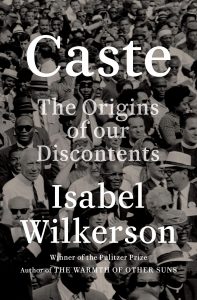
Isabel Wilkerson, Caste: The Origins of Our Discontents
Random House, August 11
Isabel Wilkerson’s The Warmth of Other Suns was a transformative account of American history, outlining the ways in which the Great Migration shaped the modern-day U.S. as we know it. Now, she reveals more about the inner workings of America by examining its hidden caste system, one governed by economic and racial hierarchies along with institutional structures that prioritize the powerful and demonize the less-advantaged. –Corinne Segal, Senior Editor

Sarah Chayes, On Corruption in America: And What is At Stake
Knopf, August 11
With trillions in government assistance thrown at business in the last three months and very little sense of who got it and why, one might say Sarah Chayes’ latest book is perfectly timed. Yet it remains to be seen how even this seriously damning exegesis of corruption will be taken. To quote one of Chayes’ own fiery articles in Foreign Affairs from three years ago, “despite paying lip service to the problem of corruption for decades, leaders in rich, developed countries have never treated it as more than a second-order foreign policy concern.” And to quote her here: “In the United States, serious and damaging public corruption is not getting punished.”
Indeed, quite the opposite. Beginning with the devastating 8-0 Supreme Court overturning of Virginia governor Bob McDonnell’s corruption conviction—which may be to federal corruption what Citizens United has been to corporate oversight—Chayes suggests we may be in for a new heyday of fraud. If that’s the case, this book reminds, take heart, it was ever thus: “On Corruption in America” traces this tradition in the US back a century and a half and finds it lurking at the heart of every single economic catastrophe. Graft and outright theft were at the heart of the building of US railroads, after all. Indeed members of Grant’s administration bribed to look the other way as the equivalent of $1 billion was skimmed in government funds. When the panic of 1873 ensued, it was the people working on railroads who lost everything: not the ones speculating on them.
Chayes follows this thread—that corruption isn’t just theft, but a transfer of value from labor to the rich—through the great Depression, the post-war period, the junk bond explosion in the ‘80s, the collateralize credit default swap Great Recession of the late aughts, and on up into today, revealing that at its core the US is built on this kind of graft. (And she doesn’t even go into the biggest theft of all—the land itself and the people stolen to America to work it)
In the book’s latter half, Chayes builds a comprehensive portrait for the way corruption has embedded itself into the bedrock of our politics, financial and judicial systems. In other words, how in spite of benefiting the precious few, it has remained the way things are done. Even when people are very, very angry. Perhaps a tipping point is coming. –John Freeman, Executive Editor

Chris Hamby, Soul Full of Coal Dust: A Fight for Breath and Justice in Appalachia
Little Brown, August 18
As previously described: In America’s coal country, miners and their families have been fighting the long blight of black lung for decades while facing inadequate access to health care, little to no government assistance, and active suppression from one of America’s most influential industries. Chris Hamby, who previously won a Pulitzer Prize for his reporting on this issue, details the story of miners’ struggle for justice, highlighting the people and relationships that have sustained these communities and the determined, meticulous organizing that it has taken to create change. Informed by many years of reporting, and including a breathtaking level of detail, this is an incredible story about power in America. –Corinne Segal, Senior Editor

Lawrence Osborne, The Glass Kingdom
Hogarth, August 18
As previously described: Osborne is among the finest pure writers at work today, and at this point he’s more than earned the Graham Greene comparisons. In his newest, The Glass Kingdom, he returns to a scenario that will enthuse admirers of his The Ballad of a Small Player: a mysterious fugitive settles into uncanny, luxurious surroundings in an Asian city. Here, the city is Bangkok, and the fugitive in question is a young American woman with a mysterious source of funds and a new address in a tony Bangkok apartment building. She soon taps into an odd community of expats from across the globe, all confined to the building’s louche surroundings, with too many secrets to count among them. –Dwyer Murphy, CrimeReads Editor-in-Chief
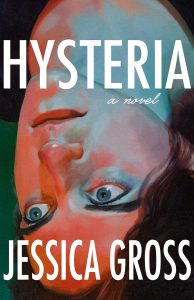
Jessica Gross, Hysteria
Unnamed Press, August 18
As previously described: At first, Hysteria feels like another entry in the canon of recent novels about self-destructive, masochistic young women—but soon things start to shift, as our extremely lustful, extremely self-hating heroine meets a man at a bar and . . . decides he is Sigmund Freud. Which, twist. After that, the novel only gets weirder, and only goes deeper, the centerpiece a half-real, half-fantasy recollection of the narrator’s first orgasm, and in the end, the whole thing feels like an R-rated, modern version of Clarice Lispector’s insane, intense The Passion According to G. H. If you’re into that kind of thing. –Emily Temple, Managing Editor
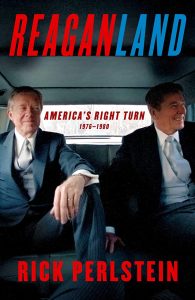
Rick Perlstein, Reaganland: America’s Right Turn 1976-1990
Simon & Schuster, August 18
With this mammoth but light-footed book Rick Perlstein concludes his extraordinary trilogy on the rise of American conservatism. From Goldwater’s presidential campaign in 1964 to Reagan’s victory in 1980, a social movement swept to power in America, ushering in what would become the most far-right ideology of any ruling power in any industrialized state. Perlstein’s gift has been to examine how that happened not as a strategist, but as the ultimately political beat reporter: finding out what coalitions and which turning points made it possible. Which moral compromises on policy.
Where this book begins, Reagan appeared to be on the ropes: Ford’s loss of the presidency was hung on his neck, he didn’t appear to have a winning coalition. But several things would come together in these four years, capitalizing on Carter’s bumpy years: a combination of religious fundamentalism, racism, anticommunism and free market believers banded together to define themselves against liberalism. And Reagan—for all his optimism—was more than happy to carry their flag. Even (or especially) when it meant demonizing equal rights, gay Americans, or anyone who carried an unwanted child. Vividly told and profoundly well researched, Reaganland is essential reading for anyone who wants to understand how American politics wound up where it is today. –John Freeman, Executive Editor

Emma Jane Unsworth, Grown Ups
Scout Press, August 18
A book born of the digital age, with snippets of text conversations and emails intermingled into the rest of the searing, hilarious prose, Grown Ups tells the story that we all fear might be true of ourselves: that we’ve never really known how to grow up, or maybe how to be, at all. The familiar and vulnerable protagonist, Jenny, has a life that feels out of control. She’s been fired, dumped, and all of her friends seem to have their lives together in a way that feels impossible for her to muster, and on top of it all, her mother moves in. With that dry British humor we can’t get enough of, Grown Ups is both tender and comedic, and makes us both feel less alone and more able to take on our own messy and valuable lives. –Julia Hass, Lit Hub Editorial Fellow
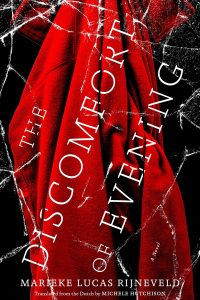
Marieke Lucas Rijneveld, tr. Michele Hutchison, The Discomfort of Evening
Graywolf, August 18
I wave my lantern at a bird to drive it away,” Marieke Lucas writes in their debut novel. “The candle wobbles dangerously, and a drop of candle-grease falls on my welly. The startled bird flies up into a tree.” The Discomfort of Evening, the story of a young girl whose family experiences an unexpected tragedy on their dairy farm in the Netherlands, falls into one of the more alluring categories of fiction: childhood innocence distorted. Lucas is great at upping the reader’s sense of dread. –Aaron Robertson, Assistant Editor

Judith Schalansky, tr. Jackie Smith, An Inventory of Losses
New Directions, August 25
As previously described: It’s an interesting time to read a book about lost places and things, but I found a strange comfort in Judith Schalansky’s An Inventory of Losses—a collection of stories about things and places that no longer exist, from a sunken Pacific Island to a fragment Sappho. Schalansky writes with such precision and wonder that reading the collection felt like touring a meticulously curated museum. At the same time, each story imbues its loss with immediacy—I couldn’t help but mourn even the ones I had never before considered. –Jessie Gaynor, Social Media Editor
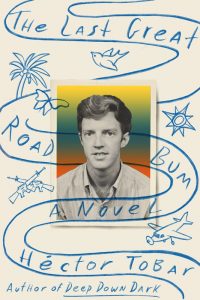
Héctor Tobar, The Last Great Road Bum
MCD Books, August 25
As previously described: As a reporter and novelist, Héctor Tobar often acts as a biography in miniature. In his fantastic—and ought to be rereleased travelogue, Translation Nation, he criss-crossed America, interviewing Latinx people and retelling their stories, how they came to where they lived, what they did, how life seemed to them. The speed and respect and sensitivity with which Tobar can encapsulate a life, whether it’s a trapped Chilean miner, as in his Deep Down Dark, or a domestic worker just trying to get children to safety, as in his tender 2011 novel, Barbarian Nurseries, is dazzling.
Finally Tobar is back to fiction in The Last Great Road Bum and he’s written a kind of inside out version of one of his books. It tells the tale of a real life white man from Illinois, Joe Sanderson, who spent most of his life traveling the globe, from Vietnam to Jamaica to El Salvador, where he wound up finding (and dying) with Che-inspired guerillas. Tobar first wrote about the story in an LA Times column, he has now turned into a highly absorbing and thought provoking nonfiction novel about the forces that can blow a person sideways through life. Drawing from Sanderson’s letters, the novel muses on who gets to tell stories as it probes the lines between myth and reality. This is first rate storytelling from a writer who deepens the sky with every book he writes. –John Freeman, Lit Hub Executive Editor

Jason Diamond, The Sprawl
Coffee House, August 25
As previously described: The suburbs of America have been the unlikely muse for many musicians, writers, and filmmakers. But narratives about the suburbs often pause at a surface level, using them as shorthand for conformity and not taking a deeper look at what makes them tick. In his new book The Sprawl: Reconsidering the Weird American Suburbs, Jason Diamond explores the unexpected history that shaped many a suburb while also venturing into the notable art that arose from them. It’s the rare work of cultural criticism with a purview that encompasses William Gibson, Celeste Ng, and Anthony Bourdain—and it’s all the stronger for it. –Tobias Carroll, Lit Hub contributor

Helen Macdonald, Vesper Flights
Grove, August 25
As previously described: On a recent afternoon in my bed, I got teary-eyed over the loss of a hometown mall. When it opened in the 1950s in a suburb of Detroit, it was the world’s largest shopping outlet, hailed as the future of post-war leisure in America. In Vesper Flights, Helen Macdonald’s variegated essay collection, the author calls this mourning “the casualties of fast capitalism for your own generation”—sorrow for what has been lost to me, an injury against my memory of place, though the rituals of capitalist consumption are still alive and well. J.C. Penney and Nieman Marcus are going under and perhaps, for a little while, we can see birds in the sky more clearly, slow for a herd of mountain goats in Wales, and hear a screaming peacock somewhere on the streets of Dubai. These images remind us of what Macdonald writes of so sensitively in this book: the interwound life cycles of humans and other species, how inextricable organisms are from their environments, natural and artificial, and the awareness that our efforts to shape the world as we think it ought to be make it “harder and harder to have faith that the way things are going can ever be reversed.” Macdonald ensures you won’t see certain things the same way after reading Vesper Flights: birds’ nests, field guides, boars, and other surprising miscellany. My favorite essay, “High Rise”—about the life that exists above us, in the rarefied domain of skyscrapers—best encapsulates Macdonald’s call for us to imagine a more aesthetically and morally complex world. –Aaron Robertson, Assistant Editor
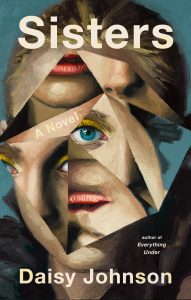
Daisy Johnson, Sisters
Riverhead, August 25
As previously described: Sisters is a dark, atmospheric novel that explores the tension of familial closeness, both physical and emotional, and unfolds in a house in near-isolation… and somehow Daisy Johnson wrote it before the pandemic. Prescience aside, Sisters is one of the rare novels that balances an almost-uncomfortable level of tension with gloriously stylish prose throughout. There’s an element of escapism in the profoundly creepy, and the masterful claustrophobia of Sisters will deliver you from your own. –Jessie Gaynor, Social Media Editor
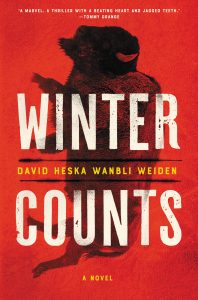
David Heska Wanbli Weiden, Winter Counts
Ecco, August 25
Winter Counts is one of 2020’s most exciting debut novels, the start of what we hope will be a long and many-volumed career in crime fiction. Meet Virgil Wounded Horse, the man who takes on the jobs traditional law enforcement can’t handle on the Rosebud Indian Reservation in South Dakota. He’s determined to find out how heroin is flooding the reservation, a crusade that takes him across the parched, corrupted landscapes of the American West and after organized crime figures fueling the systemic injustices already in place on the reservation. This is urgent, hard-hitting crime fiction that will keep you reading. –Dwyer Murphy, CrimeReads Managing Editor
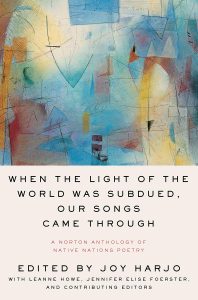
Joy Harjo, ed., When The Light of the World Was Subdued, Our Songs Came Through: A Norton Anthology of Native Nations Poetry
Norton, August 25
This rich landmark anthology, edited by US Poet Laureate Joy Harjo and others, brings together 160 poets from over 100 nations, showcasing the enormous range and energy of Native poetry, a force which stretches back hundreds of years. Organized geographically, the book culls from oral poetic traditions and written ones as well, and builds up to the vibrancy of the present, a period well-curated in Heid Erdrich’s anthology of two years ago. –John Freeman, Executive Editor

Harold Holzer, The Presidents vs. the Press
Dutton, August 25
Even before our current president was aiming outright hostility at members of the press, the executive branch’s approach to journalists was an important measure of its attitude toward public image and the First Amendment. Holzer’s The Presidents vs. the Press takes a close look at that relationship while relaying a number of fascinating anecdotes from various administrations throughout history. –Corinne Segal, Senior Editor
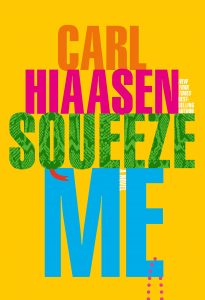
Carl Hiaasen, Squeeze Me
Knopf, August 25
If he weren’t reigning king of screwball crime fiction, you’d wonder just what in the hell Carl Hiaasen was thinking with his new book, which takes on two great Florida scourges: the current President’s demented Palm Beach demimonde and the influx of invasive pythons in Florida’s islands and waterways. Then you think it over for a while and realize that it might just be the greatest collision of worlds ever dreamed up by an immensely imaginative and enjoyable writer, one who revels in capturing and skewering the absurdities of modern society. –Dwyer Murphy, CrimeReads Managing Editor

Vanessa Veselka, The Great Offshore Grounds
Knopf, August 25
My first encounter with Vanessa Veselka’s writing was this absolutely astonishing GQ essay, and I’ve been an admirer ever since. This, her second novel, tells the story of half sisters brought together by the promise of financial security. Instead, they’re given world-reconfiguring information with which they must grapple. A cross-country epic of complicated family dynamics and secrets waiting to be uncovered sounds like a fitting showcase for her considerable skills. –Jessie Gaynor, Lit Hub Social Media Editor
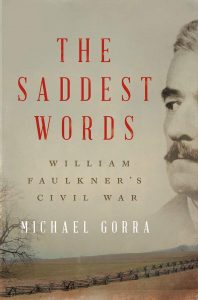
Michael Gorra, The Saddest Words: William Faulkner’s Civil War
Liveright, August 25
William Faulkner took one trip to Europe before winning getting The Call from Stockholm a quarter century later. But when he was 27, a book in his pocket, he steamed to the continent, traveled across the Alps and spent his summer at a cheap hotel on rue Servandoni in the 5th. He didn’t dine with Ernest Hemingway or visit with Gertrude Stein. He passed James Joyce in a cafe but was too afraid to speak. Most of his time he sat on a bench in Luxembourg Gardens, writing—surrounded by statues of a past which wasn’t past.
To read this period recounted by Michael Gorra in his elegant new critical biography, The Saddest Words, it becomes clear that Faulkner’s mind would never leave the world which made it. That the amnesiac attitude toward the war and what it was supposed to have concluded was far more interesting to him than anything in Paris. In recent work on Faulkner, Philip Weinstein argued Faulkner was modernism’s American interpreter. Shuttling between biography, civil war history, and the novels Faulkner wrote around both, Gorra has given us a new way to read one of America’s greatest novelists. Not as an American Balzac, as Frederic Karl saw Faulkner in his endless 1,100-page biography, or a grateful magpie to continental literature, as he occasionally appears in Weinstein’s work. But as a writer who saw in telling the pre-history and aftermath of the Civil War that he could look at America’s defining conflict by looking away from it.
Gorra has made a life of writing and teaching the British novel, but he comes to Faulkner with a deep understanding of the Mississipian’s work, too. Weaving from the great works to Civil War history, to snags on Faulkner’s life and the trends of his time, Gorra never attempts to make a grand design. Nor does he fall into the trap of being in awe of his subject, of granting him largeness of spirit he does not always demonstrative. On several occasions, as with Go Down Moses, he even admits Faulkner missed an opportunity to go deeper.
Still, Gorra appreciates how some of the best literature creates a space in which forms of memory persist to those who care to see their ghosts. If a straight up biography is what you’re after, Jay Parini’s work may be a better place to start. But this is the first major fresh read of Faulkner’s work since Eduoard Glissant’s Faulkner, Mississippi, and it’s a joy to read. –John Freeman, Executive Editor
Emily Temple
Emily Temple is the managing editor at Lit Hub. Her first novel, The Lightness, was published by William Morrow/HarperCollins in June 2020. You can buy it here.









